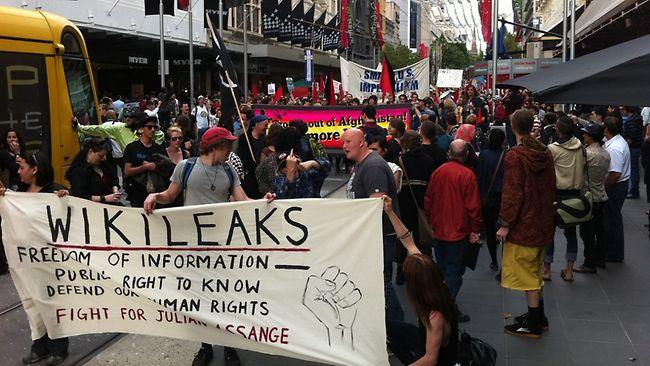The purpose of journalism is to pursue the truth and convey it effectively to the public. In that pursuit, journalists may find themselves in ethical grey areas that require thoughtful consideration. The intentional disclosure of Hillary Clinton’s emails by WikiLeaks serves as one of many hot-button examples of this ethical grey zone. Though journalists must determine if ethics and truth-seeking are mutually exclusive on a case-by-case basis, their investigations should not personally harm individuals while keeping those in power accountable for their actions.
In determining the ethics of investigations, journalists and consumers should carefully consider the source and method of the leaks. While the leaks have been powerful in initiating investigation, they are not without political bias or malintention. Many, including CIA Director, Mike Morell, have suggested a high probability of Russian government and WikiLeaks collaboration in disclosing emails from both Clinton Foundation and Hillary Clinton’s campaign. In corroboration, the Department of Homeland Security and Office of the Director of National Intelligence asserted in a joint statement, “The recent disclosures of alleged hacked emails on sites like DCLeaks.com and WikiLeaks and by the Guccifer 2.0 online persona are consistent with the methods and motivations of Russian-directed efforts.” Moreover, both entities went on to assign a political character to the leak: to interfere with the U.S. election process. Julian Assange, founder of WikiLeaks, said, in an interview with Afshin Rattansi, that it was likely state actors, including Russia specifically, that hacked the Democratic National Convention. Former WikiLeaks employees, such as Kevin Ball, have confirmed Assange and WikiLeaks’s anti-Clinton bias. Ball has claimed that Assange is hoping to reclaim his fame and settle a score with Clinton, who lambasted Assange when she was Secretary of State. For what it’s worth, Eric Snowden, a famous whistleblower of the NSA’s activities, believes that the WikiLeak’s failure to even moderately curate the data leak is a “shot at reclaiming the world stage, and settling a score with Hillary Clinton as he does so.” Perhaps WikiLeaks has released necessary information; however, the manner in which it has done so is both harmful and undemocratic.
What the Clinton email leak does show is that WikiLeaks is not a democratizing tool and remains marred by political bias. In direct contrast to the early WikiLeaks release of Iraq and Afghanistan war logs and State Department cables, no information from the Clinton emails was curated. For the war logs and cables, WikiLeaks employees redacted information to protect innocent people and met with the State Department in order to figure out what information should be withheld. This act of editing before the leak shows that WikiLeaks was more interested in providing the American people with information than sharing personal information. Unfortunately, WikiLeaks has not maintained this practice consistently or ethically — instead, it has increasingly relied upon bad leaks.
According to the Markkula Center for Applied Ethics, there are specific definitions for good and bad leaks. A good leak is “the disclosure of information that expands public understanding of an issue of public interest – without harming anyone,” while a bad leak is defined as “one that does harm and does not aid public understanding of an important public issue.” Consequently, journalists must consider intent and content when deciding what leaks to leverage in reporting. The use of bad leaks reveals tawdry information, while that of good has the potential to create a more democratic world.
These definitions are also helpful when we consider other large WikiLeaks like the “Erdogan emails,” which regarded Turkey’s military coup. These emails did contain valuable information about corruption and censorship in Erdogan’s regime. However, they also included the voter ID numbers, phone numbers and addresses of nearly every female voter in Turkey in 79 out of 81 provinces. In a society where women are under threat of being harmed, disclosing such information is not valuable, but dangerous. Therefore, leaks need to be curated, not only to protect classified information that, if released, would endanger outgroups and less powerful populations from violence.
As journalists, the decision to report private information ultimately requires thoughtful consideration and curation. Respecting the rights of others and the pursuit of truth is what separates a news publication from a tabloid; “telling it all” sounds democratic but is unethical. Leaks that focus on propelling better policy are superior to those focused on embarrassing the subject or author of the leak. Even in the modern age, journalists still hold a large degree of power. The winner of a debate is determined not by the arguments and rebuttals of the candidates themselves, but how journalists and talk show hosts craft the conversation around it. The public also relies on the news for information, so journalistic judgment and ethics are imperative. With the 24-hour news cycle, success of journalism is dictated by its relative quantity of consumers. While sordid details about personal relationships and gossip draw more clicks, journalists, bloggers and any online media user must exercise judgment when confronted with leaked information. We, the Wellesley News, remind ourselves of our purpose to inform our community, hold those in power accountable and avoid the desire to focus on personally harmful stories.





